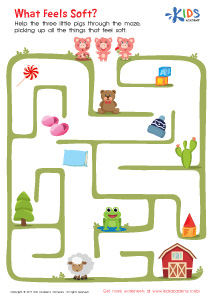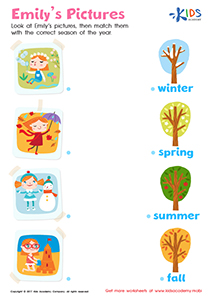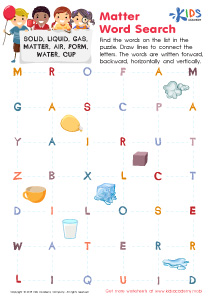Extra Challenge Life Science Worksheets for Ages 5-7
5 filtered results
-
From - To
Enhance your young learners' understanding of life science with our Extra Challenge Life Science Worksheets, designed specifically for ages 5-7. These engaging, printable worksheets promote critical thinking and exploration while covering essential concepts such as plants, animals, habitats, and ecosystems. Ideal for classroom activities or home enrichment, each worksheet offers age-appropriate challenges that stimulate curiosity and foster a love for science. Encourage your child to observe, question, and learn through interactive exercises that make studying life sciences fun! Perfect for teachers and parents alike, our worksheets are an excellent resource to support learning and development in early childhood education.
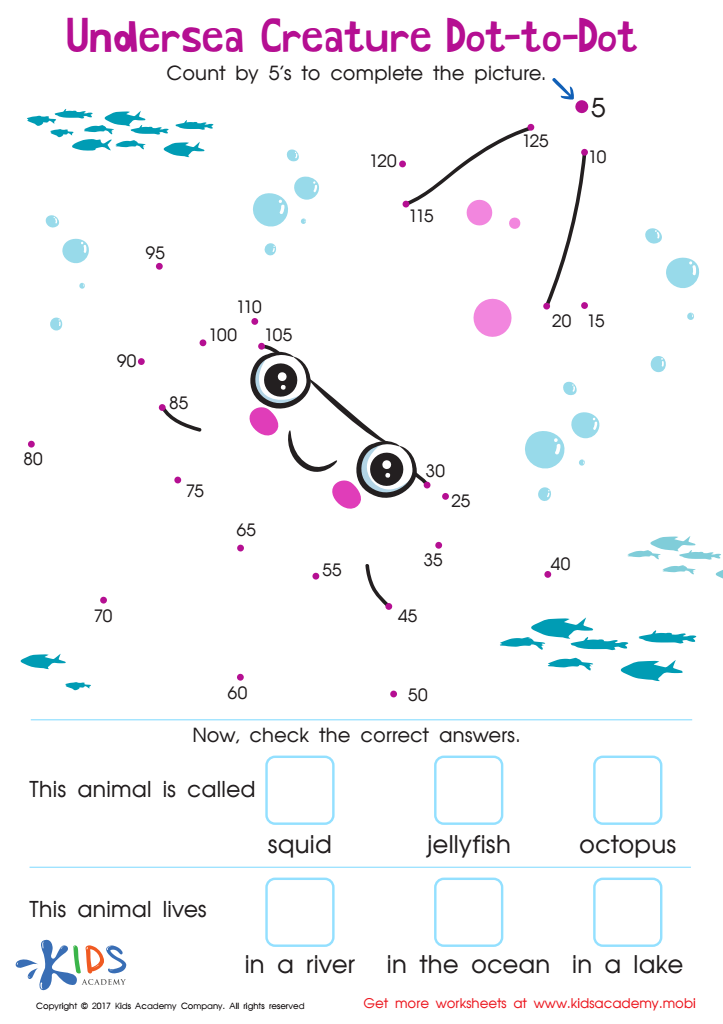

Undersea: Dot To Dot Worksheet
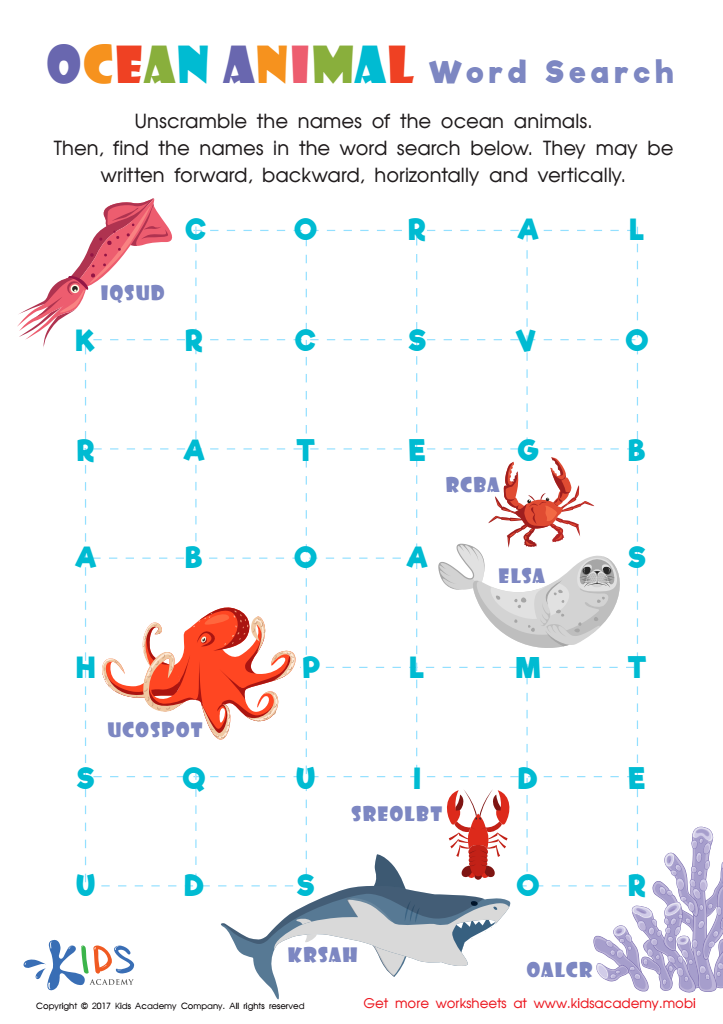

Ocean Animals Word Search Printable
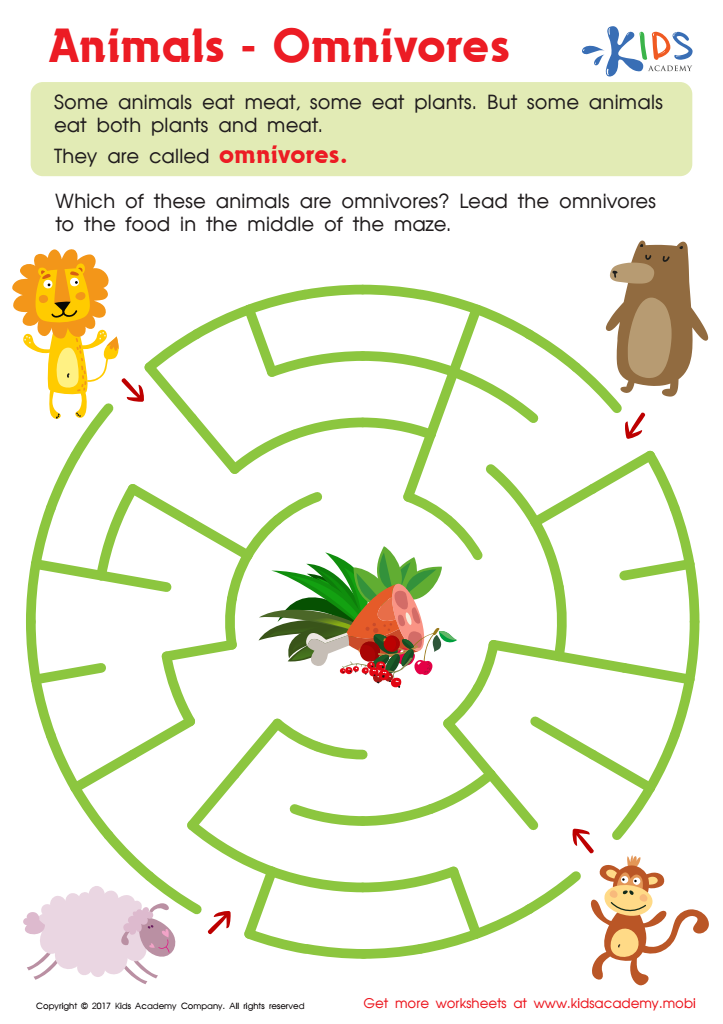

Omnivores Animals Worksheet
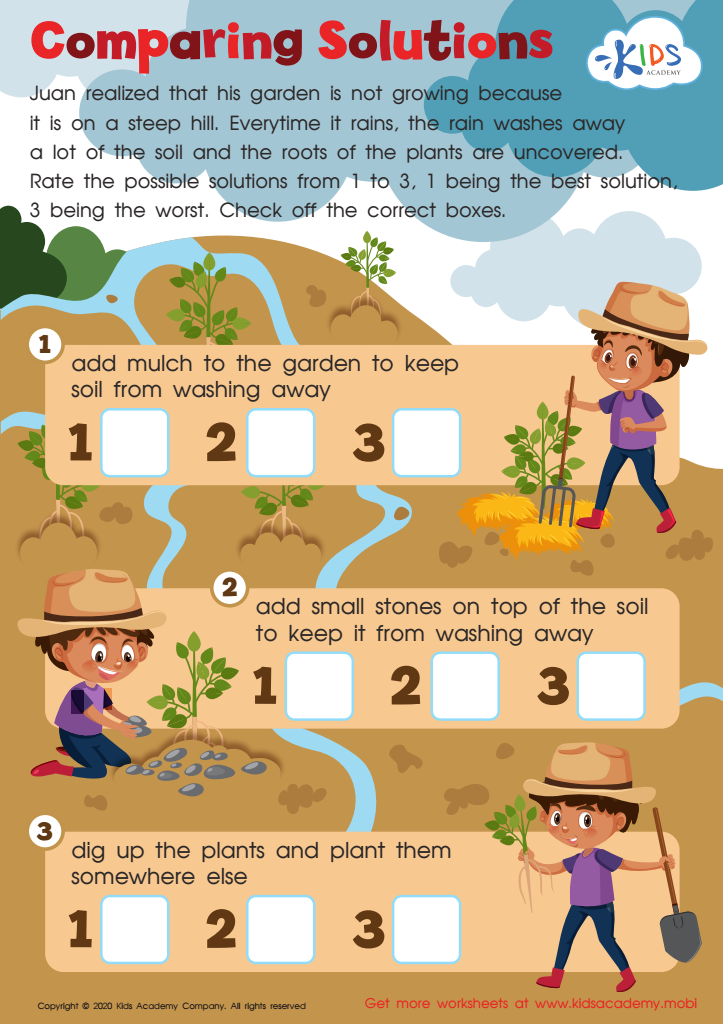

Comparing Solutions Worksheet
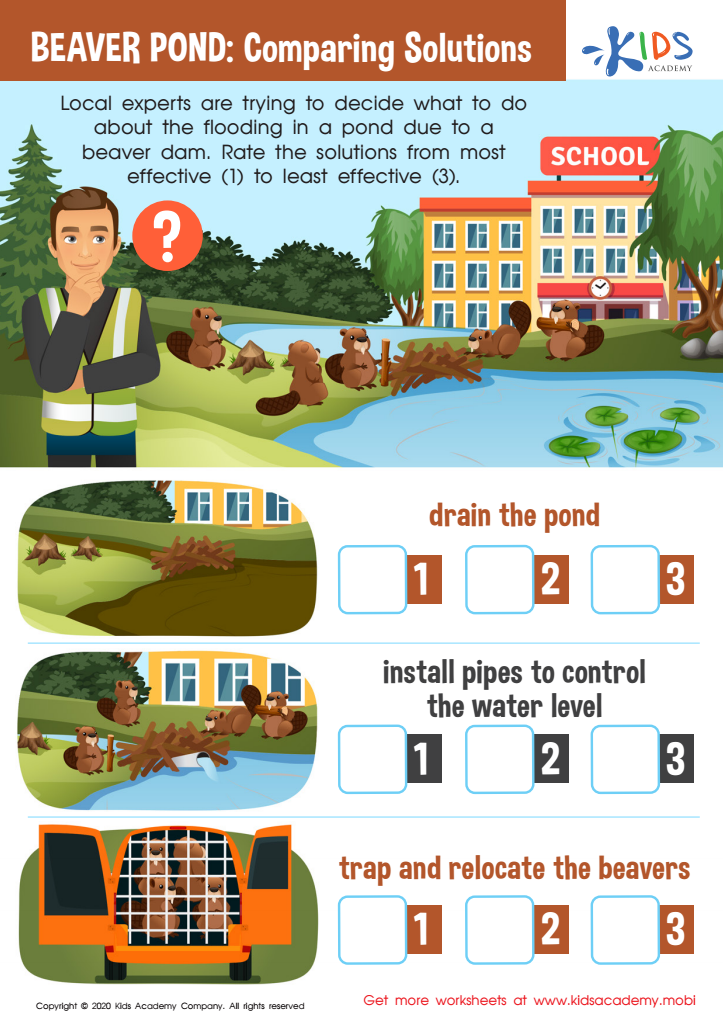

Beaver Pond: Comparing Solutions Worksheet
Parents and teachers should care about Extra Challenge Life Science for Ages 5-7 because it fosters a foundational understanding of the natural world. At this crucial developmental stage, children are naturally curious, and introducing them to life science concepts encourages exploration and inquiry. By engaging in age-appropriate challenges and activities, children develop critical thinking skills and learn to ask questions about living organisms, their environments, and biological processes.
These programs often incorporate hands-on experiences that make learning enjoyable. This interactive approach helps to strengthen children's observational skills and creativity. Engaging with life science topics can promote a sense of responsibility toward nature and our planet, instilling values of stewardship and conservation from a young age.
Moreover, Extra Challenge Life Science offers opportunities for children to collaborate with peers, fostering social skills and teamwork. It can enhance literacy and numeracy skills as children categorize organisms or graph data they collect during experiments. By caring about this aspect of education, parents and teachers ensure that young learners not only acquire knowledge but also develop a lifelong love for science, which is essential in our increasingly technology-driven world. Encouraging scientific curiosity now lays the groundwork for future educational success and environmental awareness.
 Assign to My Students
Assign to My Students










